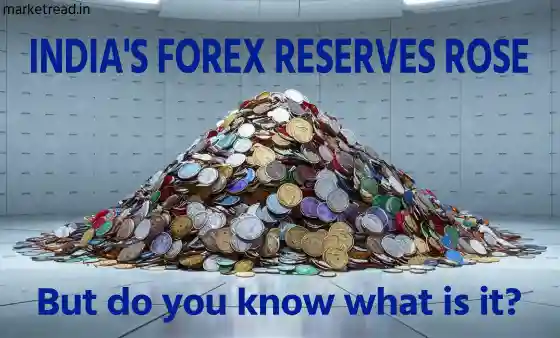India's Forex Reserves 2024
You must have heard in the news recently that "India's Forex Reserves Hit All-Time High" or "India's Forex reserves jump to record high", which means that the foreign exchange reserves are increasing. According to the latest RBI data, India's foreign exchange reserves rose by $140 million to touch an all-time high of $642.631 billion for the year ended March 22, 2024. This is the fifth consecutive week of an increase in total reserves. But do you know what exactly are foreign exchange reserves and why does India care about it so much? Let's understand it in simple words!
What exactly are foreign exchange reserves?
Imagine a country like a family. Just as a family keeps some savings for emergencies or unexpected bills or payments, countries also keep reserves of foreign currency – their foreign exchange reserves. Managed by the central bank, these reserves act as a financial safety net in the global market. Foreign exchange reserves are basically India's emergency reserves of foreign currency, which are held with the Reserve Bank of India (RBI). These reserves are mostly in US dollars, euros and other strong currencies.
Why does India need foreign exchange reserves? Think of it like this:
Import Buffer: We, our country, or rather the government of the country, import many things from oil to electronics every day to meet the needs of the people. Foreign exchange reserves ensure that we have enough foreign exchange to pay for these imports, even if our exports (things we sell to other countries) go down for some time.
Currency Stability: Imagine everyone suddenly rushing to convert their rupees into dollars. Due to this the value of the rupee may weaken. Foreign exchange reserves help the RBI to intervene in the currency market and maintain a stable exchange rate.
Investor confidence: A healthy foreign exchange reserve shows global investors that India is economically strong and can handle unexpected situations. This may attract more investment, which is good for the economy.
So, what happens when foreign exchange reserves increase?
Rising foreign exchange reserves are generally seen as a positive sign. This indicates a strong external financial position and could improve India's credit rating in the international market. This could reduce borrowing costs for the government and businesses.
But wait, is there a downside to this?
While a good amount of foreign exchange reserves are essential, having too much can be like keeping too much cash under your mattress. It gives very less interest as compared to other investments. Therefore, RBI needs to strike a balance between holding adequate reserves and using them efficiently.
Conclusion: Foreign exchange reserves are like India's financial safety net in the global market. They help us manage our international trade, maintain currency stability and attract investment. Although rising reserves are good news, RBI needs to manage it wisely!
DISCLAIMER: None of the financial information published herein should be construed as an offer to buy or sell securities or as advice in any way. All information published herein is for educational and informational purposes only and should not be relied upon as a basis for investment decisions under any circumstances. Any reader who makes decisions based on the information published herein does so solely at his or her own risk. Investors should be aware that any investment in equity markets is subject to unpredictable market-related risks.
FAQs
What are India's all-time high forex reserves?
According to the RBI data, India's forex reserves rose $140 million during the week ended March 22 and touched its all-time high of $642.631 billion.






